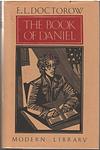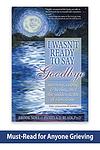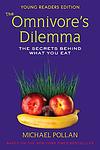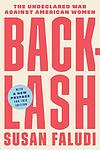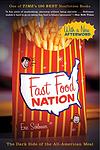The Greatest "Political, Health & Fitness" Books of All Time
Click to learn how this list is calculated.
This list represents a comprehensive and trusted collection of the greatest books. Developed through a specialized algorithm, it brings together 300 'best of' book lists to form a definitive guide to the world's most acclaimed books. For those interested in how these books are chosen, additional details can be found on the rankings page.
Genres
The "Political" category of books encompasses works that explore the theory, practice, and history of government and politics. These books may cover topics such as political ideologies, political systems, political institutions, political movements, and political leaders. They may also examine the relationship between politics and other areas of society, such as economics, culture, and international relations. Political books can be both informative and thought-provoking, offering readers insights into the complexities of the political world and the challenges of governing in a democratic society.
The "Health & Fitness" category encompasses a broad range of books aimed at helping readers achieve and maintain optimal physical and mental well-being. Titles within this genre offer insights into various aspects of health, including nutrition, exercise, weight management, and mental health strategies. From detailed guides on specific workout routines and dietary plans to holistic approaches for stress reduction and wellness, these books often provide practical advice, scientific research, and personal anecdotes to motivate and educate individuals seeking to improve their health. Whether you're a fitness enthusiast looking for advanced training techniques, someone starting a journey toward a healthier lifestyle, or a professional seeking the latest in health-related research, the "Health & Fitness" category offers resources to support a wide array of health goals and interests.
Countries
Date Range
Reading Statistics
Click the button below to see how many of these books you've read!
Download
If you're interested in downloading this list as a CSV file for use in a spreadsheet application, you can easily do so by clicking the button below. Please note that to ensure a manageable file size and faster download, the CSV will include details for only the first 500 books.
Download-
1. The Book of Daniel by E. L. Doctorow
"The Book of Daniel" is a semi-fictional novel that explores the lives of the Isaacson family, specifically focusing on the children, Daniel and Susan, after their parents, accused of being Communists, are executed. The narrative is a combination of historical fiction and a political commentary, providing a deep exploration of the Red Scare in the United States during the Cold War era. The novel is a critical examination of social, political, and familial dynamics in a time of national fear and paranoia.
-
2. Cancer Ward by Aleksandr Solzhenitsyn
"Cancer Ward" is a poignant novel set in a Soviet cancer hospital in the mid-1950s. It follows the lives and struggles of patients and doctors, exploring their personal histories, relationships, and the political environment of the time. The hospital serves as a metaphor for the oppressive Soviet state, with cancer symbolizing the malignant growth of totalitarianism. The book also explores themes of mortality, the human spirit, and the will to survive.
-
3. The American Way of Death by Jessica Mitford
This book is a critical examination of the funeral industry in the United States. The author explores the various ways in which the industry exploits the grief and vulnerability of the bereaved to upsell expensive services and merchandise, often with little regard for the actual needs or desires of the deceased or their loved ones. She also delves into the cultural and societal norms around death and burial in America, questioning their origins and the extent to which they are perpetuated by the industry for profit.
-
4. The Omnivore's Dilemma by Michael Pollan
The book delves into the question of what we should have for dinner. It explores the paradox of the omnivore's dilemma, detailing the food chains that link farm to table, and explaining how the industrial revolution has changed the way we eat. The book also discusses the implications of our modern diet on our health and the environment, suggesting that we should return to more traditional methods of food production and consumption. It advocates for a more conscious and sustainable approach to eating.
-
5. Beyond Freedom and Dignity by B. F. Skinner
This book is a controversial exploration of human behavior that challenges the idea of free will and individual autonomy, arguing instead that human behavior is largely determined by environmental factors. The author proposes that societal issues such as overpopulation, war, and pollution can be addressed by using behavioral science to shape human actions. The book also criticizes traditional notions of punishment and reward, suggesting that these methods are ineffective in influencing behavior.
-
6. Backlash by Susan Faludi
"Backlash" is a critical examination of the societal, political, and cultural forces that aim to undermine the progress of women's rights in the late 20th century. The author presents a detailed analysis of the backlash against feminism, arguing that media, advertising, Hollywood, and the conservative political movement have all played a role in promoting regressive stereotypes about women and limiting their opportunities. The author also explores the negative impacts of this backlash on women's economic status, reproductive rights, and overall wellbeing.
-
7. The Beauty Myth by Naomi Wolf
The book is a groundbreaking work that explores how images of beauty are used against women, impacting them psychologically and socially. It critically examines the beauty industry and the societal pressures on women to conform to certain standards of appearance. The author argues that the obsession with physical perfection traps the modern woman in an endless cycle of hope, self-consciousness, and self-hatred as she tries to fulfill society's impossible definition of the flawless beauty.
-
8. Fast Food Nation by Eric Schlosser
This book is an in-depth exploration of the fast food industry in America, examining its history, business practices, and impact on society. The author investigates the industry's influence on America's economy, health, and culture, revealing disturbing facts about the production process, the exploitation of workers, and the health risks associated with fast food consumption. The book serves as a critique of the fast food industry and its detrimental effects on American society.
-
9. The Triumph of the Therapeutic by Philip Rieff
This book explores the shift in Western society from a community-oriented, moralistic perspective to a more individualistic, therapeutic one. The author argues that the rise of psychotherapy and the decline of traditional religious authority have led to a culture that values self-fulfillment and personal happiness over communal responsibility and moral duty. He suggests that this shift has profound implications for the future of society, as it undermines the shared values and beliefs that hold communities together.
-
10. The True Believer by Eric Hoffer
"The True Believer" is a philosophical analysis of the nature of mass movements and the people who constitute them. The book argues that regardless of the specific cause, whether it be religious, political, or social, all mass movements are interchangeable and their followers are essentially the same. The author suggests that the driving force behind these movements is not the ideology itself, but rather the personal dissatisfaction and frustration of the individuals involved. The book also explores the lifecycle of mass movements, from their creation to their eventual dissolution.
-
11. Dreamland: The True Tale of America's Opiate Epidemic by Sam Quinones
This book provides an in-depth exploration of the opioid crisis in America, tracing its origins and examining its devastating impact. It delves into the lives of addicts, doctors, drug traffickers, and families affected by the epidemic, providing a comprehensive look at the complex factors that contributed to the crisis. The narrative also discusses the role of pharmaceutical companies and uncovers how the aggressive marketing of painkillers led to widespread addiction. Additionally, it sheds light on the black tar heroin trade, revealing how it has infiltrated small towns and suburban communities.
-
12. The Blank Slate by Steven Pinker
"The Blank Slate" challenges the conventional belief that human behavior is largely shaped by the environment and experience, arguing instead that genetics play a significant role. The book delves into the controversies surrounding this concept, exploring the implications it has on politics, violence, child-rearing, and the arts. It also argues that acknowledging our innate traits can lead to a more humane society, as it would allow for a better understanding of our strengths, weaknesses, and individual differences.
-
13. Eating Animals by Jonathan Safran Foer
This book is an in-depth exploration of the ethical, environmental, and health consequences of consuming animal products. The author's investigation includes visits to factory farms, conversations with farmers, butchers, and food safety advocates, and a deep dive into the cultural implications of food choices. The narrative combines personal experiences, philosophical inquiries, and factual data, challenging readers to consider the moral implications of their dietary choices.
-
14. The Spirit Level by Richard Wilkinson
This book presents a compelling argument that income inequality within a society leads to a wide range of social and health problems. The authors use a variety of statistical data from different countries to show that societies with more equal distribution of incomes have better health, fewer social problems such as violence, drug abuse, and mental illness, and are more cohesive than ones in which the gap between the rich and poor is greater. The book challenges the notion that societal problems are inevitable in modern, developed societies and offers a new way of understanding how we can improve the quality of life for all.
-
15. Toms River: A Story of Science and Salvation by Dan Fagin
The book is a detailed account of a small town in New Jersey, Toms River, which became the epicenter of a major environmental disaster due to industrial pollution. It chronicles the community's struggle for justice, the scientific investigation into the high cancer rates, and the eventual legal battle against the chemical companies responsible. The narrative intertwines public health, legal drama, and investigative journalism, providing a cautionary tale about the consequences of environmental negligence.
Reading Statistics
Click the button below to see how many of these books you've read!
Download
If you're interested in downloading this list as a CSV file for use in a spreadsheet application, you can easily do so by clicking the button below. Please note that to ensure a manageable file size and faster download, the CSV will include details for only the first 500 books.
Download